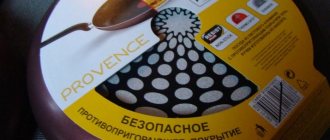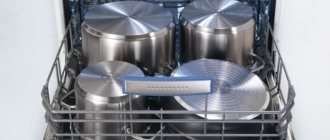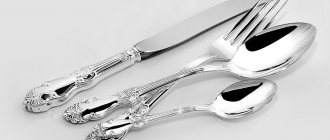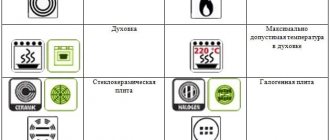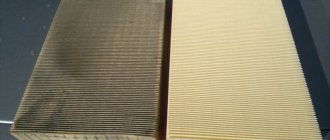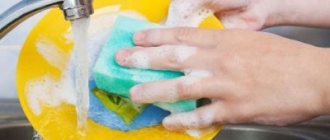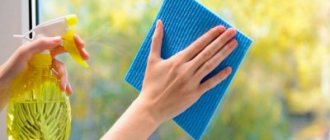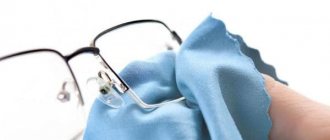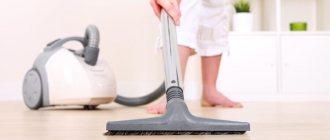Since ancient times, cupronickel silverware has been a special decoration item for any holiday. The name “cupronickel silver” comes from France, since this alloy was invented by two French academicians Mayo and Charrier. In appearance it is similar to silver items, but the price for such dishes is several times lower. Cupronickel tableware contains a copper-nickel alloy. This composition made it durable, beautiful and easy to clean. Very often people ask questions, how exactly to clean such products? Can nickel silver items be washed in the dishwasher? What products should I use to wash them? To answer them, let’s consider the advantages and disadvantages of cupronickel tableware.
Cupronickel: features
Cupronickel is one of the most beautiful materials for cutlery; it is an alloy of copper and white nickel. Cupronickel is valued for its similarity to silver, for its lower cost and higher strength. Cupronickel silverware is often very elegant and rare.
Why shouldn't cupronickel be washed in the dishwasher? It reacts with other metals and darkens easily. Also, for owners of such cutlery, the question often arises of how to clean nickel silver, since not all standard detergents for cutlery are suitable for caring for this alloy.
Cleaning Rules
To clean silverware if it is used regularly, soak it for 30 minutes in soapy water (any dishwashing detergent will do).
This is how you can remove it:
- almost invisible food remains between the cloves;
- grease and dust in hard-to-reach areas.
Some recipes call for boiling. The water to clean silverware must be soft (otherwise the dishes will become covered with a whitish coating). Use filtered or distilled water.
Dish cleaners often use ammonia, which can cause damage to skin and lung tissue. Work under a hood and wear gloves.
How to wash
What can happen to cupronickel in the dishwasher:
- The alloy will darken.
- The drawing will be erased or faded.
- The coating will be damaged, especially the gold plating.
- There is an opinion that the nickel silver coating reacts with dishwasher tablets, which is why an unpleasant oxide film is formed on the surface, which is hazardous to health.
Advice from Miss Clean magazine To preserve the design on cupronickel silverware, use special jewelry pastes a couple of times a month.
How to properly wash cupronickel:
- Do not use harsh chemicals.
- Abrasives and iron brushes are not suitable for metal.
- If dirt has adhered to a cupronickel item, soak it in warm water for 10 minutes, no more. You can add a little baking soda to the solution - this is the safest cleaning agent in the popular arsenal.
- It is not recommended to soak cupronickel for a long time, nor is it recommended to create a situation where soaking becomes necessary.
- Wash such dishes only with a soft sponge.
- Never use chlorine-containing products to remove plaque.
Cupronickel can also darken from dampness - always wipe the dishes dry.
If you nevertheless made a mistake in care, and the cupronickel has darkened, it’s time to try to save it. How to remove blackness, folk tricks:
- Wipe the dishes with a rag soaked in an alcohol solution.
- Briefly soak the utensils in ammonia, then rinse and dry.
- Dissolve 1 tbsp in a glass of warm water. l. vinegar, soak a soft cloth in the solution and rub the cupronickel.
- Soft polishing with a soda solution is acceptable.
- Take the shells of two eggs and a liter of water, bring everything to a boil and place the dishes there for a couple of minutes.
- To shine, rub cleaned cupronickel utensils with raw potatoes.
Appreciate your cupronickel: such devices create a feeling of celebration. With proper care, the dishes will delight owners and guests for many years without losing their presentability.
Source
How to clean dark plaque and other dirt
The topic of how to clean cupronickel spoons is relevant, since almost everyone has these products. This problem can be solved both by folk methods and by resorting to household chemicals. Some methods really work, while others are better to forget about and use them for another purpose.
When cleaning, you should avoid using abrasive devices and strong chemicals, as well as preparations containing chlorine, which will only accelerate the darkening process.
When cleaning, avoid the use of abrasive devices and strong chemicals.
Dish cleaning powder
How to clean cupronickel cutlery using store-bought products? With caution in mind, before using cleaning powders, you need to carefully study the composition, and also look at the size of the powder granules. The smaller they are, the better.
- “Pemolux”, “Pemoxol” are products available for sale and at an affordable price. The product is applied to a damp sponge or soft cloth, after which the device is wiped.
The product is applied to a damp sponge or soft cloth, after which the device is wiped. - “Metal Cleaner” from “Baga” is a product designed specifically for cleaning items made of bronze, gold, brass, silver and other metals. It has a targeted effect, while simultaneously imparting shine to products. It will help cope not only with darkening, but also with other types of dirt.
The product is designed specifically for cleaning items made of bronze, gold, brass, silver and other metals. - "Sif." Its advantage is the absence of abrasive particles that damage the surface. The devices are rubbed with the product, after which they are placed in a small container filled with water, into which you can additionally add a little “Sif”.
The devices are rubbed with the product and then placed in a small container filled with water. - Creamy paste "Polymet". All devices are treated with the preparation applied to a damp sponge. Leave for 20 minutes and wash with running water.
Leave for 20 minutes and wash with running water.
Some believe that Fairy will be able to cope with the task. In certain cases, it really helps, but do not forget that the goal of Fairy is to get rid of fat.
Crushed chalk, soda, fine salt, toothpaste
Crushed chalk and other components in the form of soda, fine salt or toothpaste are all household products that answer the question of how to clean nickel silver cutlery at home when there are contraindications for using chemicals.
- For regular care, use a proven recipe consisting of crushed chalk mixed with a small amount of vodka or diluted alcohol. The resulting slurry is rubbed onto the utensils. For wiping, use a piece of suede fabric.
The resulting slurry is rubbed onto the utensils. - Polishing products with soda. It is applied to a dampened sponge, after which the devices are wiped and rinsed. Products must be cleaned this way after each use. If there is a slight degree of contamination, then you can dissolve 50 grams of soda in a liter of water and dip the forks into this solution. You can make a paste of water and soda, and then rub the forks with it until you get the desired result.
It is applied to a dampened sponge, after which the devices are wiped and rinsed. - The process of cleaning using salt, but fine. It is also used to rub products. You can use a mixture of baking soda and salt taken in equal proportions. The main thing is that the cloth or sponge must be moistened.
You can use a mixture of baking soda and salt taken in equal proportions. - Rubbing with toothpaste will help give your appliances their original shine and appearance. However, experts do not advise doing this. There is a possibility of damaging the surface.
Rubbing with toothpaste will help give your appliances their original shine and appearance.
Boiling with foil in a soda solution
What else can you use to clean a very dark cupronickel spoon? When the previous methods did not give a positive result, then boiling comes to the rescue.
The bottom of the pan should be covered with foil. Then place the cutlery on top of the foil and pour in about 2 heaped tablespoons of baking soda. To enhance the effect, some advise adding 2 level tablespoons of salt. Pour hot water so that it covers the products and simmer over very low heat for a quarter of an hour.
Do not use aluminum containers for boiling, as the metal darkens from the soda solution. For these purposes, you can take utensils made of stainless or enameled steel. Plus, this method is not suitable for gold-plated products.
Do not use aluminum containers for boiling, as the metal darkens from the soda solution.
Boiling with garlic peel
How else can you wash cupronickel forks and spoons at home? Using a decoction of garlic peels. To do this, pour the husks into a container and fill with water. Place on fire and bring to a boil. Place the equipment in this broth. Keep on fire until the metal is completely lightened.
The more husk, the more effective the result.
The more husk, the more effective the result
Boiling with eggshells
The shells of two fresh eggs are crushed, one large spoon of salt is added and filled with one liter of water. Then the mixture is brought to a boil. The broth is allowed to sit for 10 minutes, after which the devices are lowered into it. All this is put on fire again.
Alternatively, you can use the remaining water after boiling the eggs for boiling. Salt is needed for maximum effect.
The shells of two fresh eggs are crushed, one large spoon of salt is added and filled with one liter of water.
Ultrasonic bath
A device with an ultrasonic wave is designed for cleaning objects made of various materials. Water is poured into a special container or bath to the desired level. Then cutlery is placed in it and the “On” button is pressed. Ultrasound gets to work, literally knocking out all the dirt from the products.
It is not recommended to clean devices with gold plated in this way, since it will come off along with the dirt.
A device with an ultrasonic wave is designed for cleaning objects made of various materials.
Vinegar, ammonia
Components such as vinegar or ammonia can be found in any home. However, you need to use 6 or 9 percent apple cider vinegar. Unlike the previous method, this one is good because it helps to clean spoons made of cupronickel with gilding.
Here you need to moisten a cotton wool with vinegar or ammonia solution and wipe the spoons. The ammonia solution consists of 50 milliliters of ammonia and one liter of warm water.
It is necessary to moisten a cotton wool with vinegar or ammonia solution and wipe the spoons.
Potato broth
For this cleaning method, ordinary potatoes are boiled, and the devices are dipped into the resulting broth for a period of half an hour to 50 minutes. The main thing is not to add salt when cooking the tubers. Otherwise, a reverse reaction will occur and the metal will darken even more.
You can use potatoes or their pulp raw. Objects are rubbed with a cut bulb, and they are dipped into the pulp until lightened.
For this cleaning method, regular potatoes are boiled, and the devices are dipped into the resulting broth for half an hour to 50 minutes.
Egg white
How to clean coated cupronickel spoons? To help - chicken egg white. Soak a cotton pad or soft cloth in it and rub the items until they shine.
There are a lot of other tips, for example, using carbonic acid, which is present in all types of sweet soda. Forks and spoons should be soaked in them for 20 minutes. The method with pasta is similar to the recipe for peeling with potato broth. True, the boiling time for the appliances along with the pasta is 20-30 minutes.
Soak a cotton pad or soft cloth in it and rub the items until they shine.
Can cupronickel be washed in the dishwasher?
Owners of cupronickel tableware and cutlery can be said to be lucky, because among such products there are real rarities. You eat something with a cupronickel spoon and don’t know that it can cost a fortune. It’s all the more offensive if such a spoon or bowl is hopelessly damaged due to improper care. We will try to prevent this and first discuss the question of whether cupronickel can be washed in the dishwasher? Can a dishwasher even ruin a cupronickel item, or is this just idle speculation, let’s find out.
What will happen?
Cupronickel alloy is one of the most resistant. This fact is known to many and this has also given rise to the erroneous statement that cupronickel dishes and cutlery are not afraid of any harsh washing conditions. Meanwhile, washing dishes made from this copper-nickel alloy in the dishwasher is strictly prohibited and for good reason. Of course, under the influence of chemistry and hot water, cupronickel will not collapse, but something will happen to the products that the owner will absolutely not like.
- Cupronickel silverware and cutlery will darken greatly.
- Any coating on objects made of such an alloy will suffer very quickly.
- The design on nickel silver objects will, at best, become more faded, and at worst, will be partially erased.
It is clear that no one would want to use cupronickel dishes blackened in this way.
It is also believed that the coating on nickel silver products reacts with the tablets and powder that are commonly used in the dishwasher. As a result, an oxide film forms on the surface of the product, which makes the dishes not only unsightly, but even hazardous to health. If you value your nickel silver cutlery and crockery, take care of it properly and don't mindlessly shove it into the dishwasher.
What dishes should not be washed?
In addition to the listed types of kitchen utensils, there are products that are strictly prohibited from being washed in the dishwasher. These include spoons, tea service, silicone molds and other devices with stickers. Once in a humid environment, any badge or paper label will get wet and “slip.”
Aluminum and silver products
Many kitchen product manufacturers allow you to wash silver or aluminum pans, spoons and cups in the dishwasher. But different chemical compositions can harm such materials, as a result of which the surface of the dishes becomes covered with dark spots and deposits. To prevent this, it is recommended to use proven means. These include Bosch detergent.
If aluminum is exposed to a humid environment, it triggers the process of releasing ions. Therefore, if you place several products made of this material in the car and leave them there for 2-3 hours, this will lead to the appearance of a corresponding metallic deposit. In this case, aluminum will not only end up on the internal walls of the unit, but will also begin to clog the sprinkler nozzles. Such phenomena are fraught with damage to the PMM.
However, aluminum cookware with Tefal non-stick coating can easily withstand exposure to water.
Can cast iron grates be washed in the dishwasher?
When wondering whether cast iron grates can be placed in a dishwasher, it is necessary to clarify the specifics of the device itself. Most manufacturers do not recommend washing cast iron cookware in a PMM, but nothing is said about grates. Although there are a lot of pitfalls here.
Some housewives claim that after being in the car nothing happened to the grille, while others complain about the appearance of plaque and contamination of the internal space of the system.
In addition to grates, other kitchen tools and utensils are cleaned in the PMM.
On the forums you can find reviews where a person writes that he washed the meat grinder in the dishwasher, and it began to rust. Therefore, there is no clear answer to the question of whether it is possible. It all depends on the material of the structure you are washing.
Wooden items
Any wood is afraid of water, so it is better to clean spatulas, cutting boards for meat and food, rolling pins and other wooden structures with your own hands. Once placed in the dishwasher, they will begin to swell from excess moisture and then shrink due to exposure to high temperatures. As a result, the utensils will crack, become deformed and become unsuitable for further use.
Modern boards are created from glued pieces rather than from a single piece of wood. Such objects often fall apart into several elements once in the water. After contact with water, the adhesive composition can enter the body along with food.
Knives and strainers
Knives made of stainless steel can become dull after being in the dishwasher. The material itself is not at risk, but the kitchen appliance will need re-sharpening. This also applies to strainers, graters and other structures with sharp edges - they can only be washed by hand.
Thermos and crystal products
Many kitchen utensil manufacturers do not allow crystal items and thermoses to be washed in the dishwasher. The latter are designed in such a way that their bulb is covered with heat-insulating material. Under the influence of water, it not only loses its initial properties, but also begins to deform. And the presence of chemicals in the dishwasher threatens the entry of harmful substances into the body. And even if you completely dry the container, after washing the insulation will not retain heat as well as before. Therefore, experienced housewives wash thermoses exclusively with their hands.
As for crystal, some designs can be washed in PMM. It all depends on the features and characteristics of the material. Most varieties cannot withstand exposure to temperatures above 50°C. Such heating can cause the formation of microcracks.
Crystal glassware may only be placed in the dishwasher if there is a corresponding mark from the manufacturer on its surface.
Knives and tools with sharp edges
Sharp objects are contraindicated in the dishwasher. Firstly, you can forget or simply not know about cutting objects, if you were not the one who put the dirty dishes, and get seriously injured.
Secondly, such washing can ruin good appliances. Strong detergents, when used frequently, will dull the sharp edges of expensive knives over time. This is especially true for ordinary housewives who are not often puzzled by sharpening. Knife handles can be damaged in the dishwasher, and carbon steel blades can rust over time.
Thirdly, carelessly placed knives can simply damage the parts of the dishwasher, which will lead to breakdown.
All this, of course, does not apply to ordinary table knives, but their steel inevitably becomes dull over time due to frequent washing.
Can nickel silver items be washed in the dishwasher?
Since ancient times, cupronickel silverware has been a special decoration item for any holiday. The name “cupronickel silver” comes from France, since this alloy was invented by two French academicians Mayo and Charrier. In appearance it is similar to silver items, but the price for such dishes is several times lower. Cupronickel tableware contains a copper-nickel alloy. This composition made it durable, beautiful and easy to clean. Very often people ask questions, how exactly to clean such products? Can nickel silver items be washed in the dishwasher? What products should I use to wash them? To answer them, let’s consider the advantages and disadvantages of cupronickel tableware.
Advantages and disadvantages of cupronickel tableware
Cupronickel silverware has the following advantages:
- Due to its composition, it benefits human health. Nickel, acting on the pancreas, can lower blood sugar levels. Copper has an antibacterial effect. It was also found that if you leave water with cupronickel cutlery, it is useful to wash your face with such a liquid.
- It is wear resistant. Due to the metal connections, the products have significant weight, which means they are difficult to damage or break.
- Items made of cupronickel heat up rather slowly, so they are convenient in everyday life.
- Durability. Due to the combination of metals, this material can remain like new for several decades.
- Aesthetic side. Products made from cupronickel have always been used on special occasions, as they look very expensive and beautiful.
Proper care of silver spoons and other silverware
If your silver spoon has darkened, it means you haven’t spent enough time caring for your valuable cutlery. Above we have listed the most effective ways to keep your silver cutlery in order. It is enough to use them from time to time: once every few months or even a year, especially if you use silverware infrequently.
As part of regular care, silver just needs to be washed properly, and only then, if necessary, radically cleaned and polished.
The best way to wash silverware is as follows:
- Dissolve shavings of laundry or baby soap in hot water.
- Soak cutlery in the solution for about an hour.
- Using a soft sponge, carefully remove any remaining food, rinse, and dry.
How to store silverware
If you are the happy owner of such valuable cutlery, you should take care of their proper storage. Main conditions: dryness, stable room temperature, protection from sunlight.
Silverware sets are usually sold in special boxes with a velvet backing, which are best used for permanent storage. Such cases provide personal compartments for each spoon and fork.
Under no circumstances should silver be lying around in a kitchen drawer mixed with less noble cutlery. If you don’t have a special case or you use a silver spoon all the time, then at least store it separately, wrapped in a cloth.
It is better to leave silver cutlery for special occasions, and for ordinary meals use something less pretentious and capricious. The exception is a children's silver spoon.
